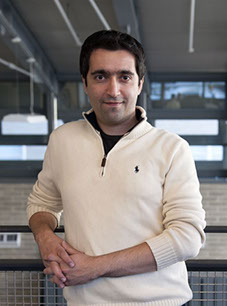Control Seminar
Planning, Control and Perception for Agile Robot Navigation: Compression, Attention, and Anticipation
Add to Google Calendar

Recent advances in algorithmic robotics allowed unmanned aerial vehicles to navigate through complex environments using on-board sensing and computational resources, albeit at relatively low speeds. In this talk, we discuss propose novel algorithms with guarantees for agile autonomous vehicles operating in complex environments at operational speeds. First, we consider the synthesis of agile control systems. We propose novel compressed computation methods based on a continuous analogue of the tensor train decomposition. The new algorithms guarantee run time that scales polynomially with dimensionality of state space and the rank of the optimal value function. Second, we consider visual-inertial state estimation for fast navigation. We propose novel algorithms for feature selection that are based on attention and anticipation. Anticipating the direction of motion, the new algorithms select visual features that minimize estimation error. Even though this subset selection problem is NP-hard, we prove that the proposed algorithm is efficient and returns solutions that are a constant factor of the optimal, by exploiting the sub-modularity of the resulting subset selection problem.
Sertac Karaman is an Associate Professor of Aeronautics and Astronautics at the Massachusetts Institute of Technology (since Fall 2012). He has obtained B.S. degrees in mechanical engineering and in computer engineering from the Istanbul Technical University, Turkey, in 2007; an S.M. degree in mechanical engineering from MIT in 2009; and a Ph.D. degree in electrical engineering and computer science also from MIT in 2012. His research interests lie in the broad areas of robotics and control theory. In particular, he studies the applications of probability theory, stochastic processes, stochastic geometry, formal methods, and optimization for the design and analysis of high-performance cyber-physical systems. The application areas of his research include driverless cars, unmanned aerial vehicles, distributed aerial surveillance systems, air traffic control, certification and verification of control systems software, and many others. He is the recipient of an IEEE Robotics and Automation Society Early Career Award in 2017, an Office of Naval Research Young Investigator Award in 2017, Army Research Office Young Investigator Award in 2015, National Science Foundation Faculty Career Development (CAREER) Award in 2014, AIAA Wright Brothers Graduate Award in 2012, and an NVIDIA Fellowship in 2011.
 MENU
MENU 
